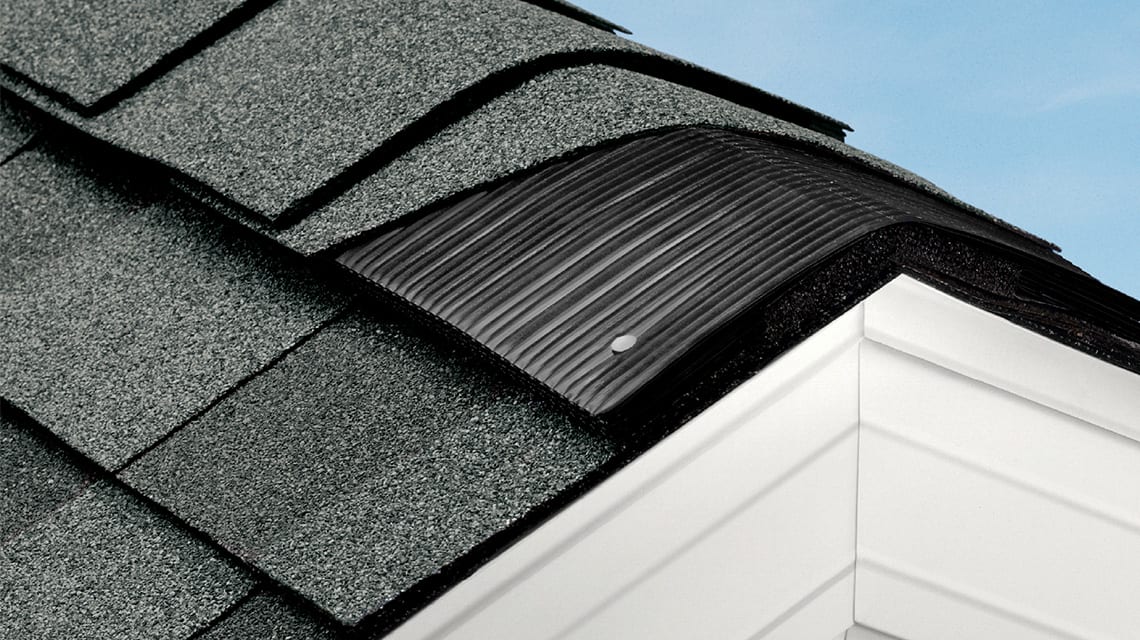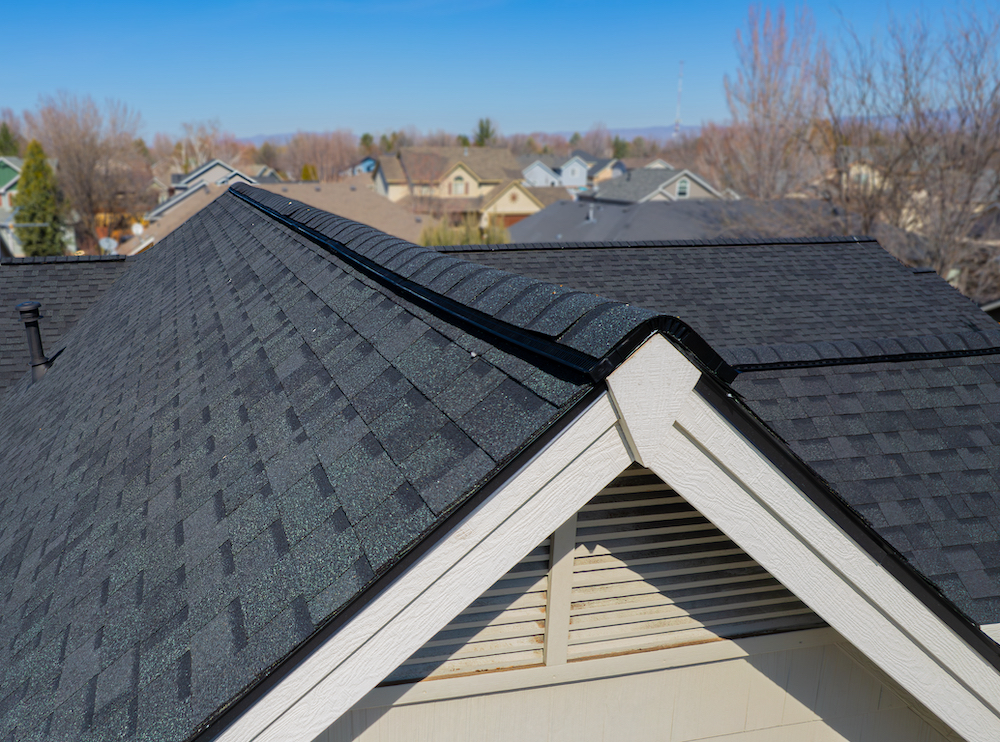When it comes to revamping your roof, one key aspect to consider is ridge venting. Ridge venting plays a crucial role in maintaining the health and longevity of your roof. In this blog, you will learn what ridge venting is, when to utilize it, and when it may not be the best option for your home. You will also learn the importance of professional roofing contractors in making this decision, as well as how to prepare your home for ridge vent installation and how to maintain your roof afterwards.
Understanding Ridge Venting
Ridge venting represents an innovative solution installed at the peak of a roof, facilitating the escape of hot air from the attic. This ventilation strategy is key to moderating both temperature and moisture levels within that space, fostering a healthier living environment.
What is Ridge Venting?
The functionality of ridge venting extends beyond mere temperature control; it plays a pivotal role in circumventing the development of mold and the formation of ice dams, which can compromise the structural integrity of the roof. By allowing hot air to exit, it also counteracts the potential for premature roof deterioration due to excessive heat or moisture.


Why is Ridge Venting Important?
By mitigating heat accumulation in the attic, ridge venting aids in reducing the reliance on air conditioning, thereby lowering cooling costs during warmer months. Its role in a comprehensive roofing system underscores the importance of a well-thought-out ventilation strategy as part of broader home maintenance and efficiency efforts.
Ridge venting is crucial for maintaining a balanced attic temperature, preventing mold, ice dams, and premature roof deterioration by allowing hot air to escape. This ventilation method reduces the reliance on air conditioning and also forms an integral part of a comprehensive roofing system, emphasizing the importance of a well-planned ventilation strategy for overall home maintenance and efficiency.
When Ridge Venting May Not Be the Best Option
Ridge venting, although widely beneficial, is not universally applicable. Certain architectural designs and existing ventilation systems may render it less effective or unnecessary.
Ridge venting may not always be ideal. Factors like architectural design, existing ventilation systems, and local climate influence its effectiveness. Homes with flat or minimally sloped roofs may find it less suitable, while existing efficient systems may not require it. Additionally, climate variations can pose challenges, making alternative ventilation methods more appropriate in some cases.
Preparing Your Home for Ridge Vent Installation
As you prepare yourself for the installation of ridge venting, it’s essential to ensure that your home is primed for this significant upgrade. Having proper insulation and removing any accumulated debris, personal belongings, or other obstructions will provide a clear pathway for your roofing contractors to work efficiently and safely.
Remove Debris and Obstructions
Additionally, it’s vital to assess the current condition of your roof. Any signs of damage, such as missing shingles or visible leaks, should be addressed prior to the installation of the ridge vent. These pre-existing issues could compromise the effectiveness of the new ventilation system if left unresolved.
Proper Insulation
Proper insulation plays a complementary role to ventilation in regulating your home’s temperature and preventing moisture buildup. Ensure that your attic’s insulation is evenly distributed and meets the recommended levels for your climate zone. This preparation step not only facilitates the smooth installation of ridge venting but also maximizes its performance once in place.
Coordinating with professional roofing contractors during this preparatory phase is paramount. They can provide expert evaluations of your roof’s readiness and offer practical advice on any necessary repairs or adjustments. This collaboration ensures that your home is fully prepared for ridge vent installation, setting the stage for enhanced comfort, energy efficiency, and roof longevity.
Maintaining Your Roof After Ridge Vent Installation
The significance of thorough roof maintenance escalates following the installation of ridge venting. Professional roofing contractors advise periodic inspections to ensure the longevity and efficiency of your roofing system, helping to prevent extensive roof repairs. These checks should ideally occur at least twice a year, particularly after severe weather events which could potentially compromise the integrity of the ridge vent and the roof overall.
Observing any signs of blockage or damage to the venting system is crucial; ensure that it remains free of debris such as leaves, twigs, or snow, which can impede its functionality.
Similarly, assessing the surrounding roofing materials for signs of wear or damage is essential, as issues like loose or missing shingles can affect the efficiency of the ventilation system.
Beyond these inspections, the role of professional roofers remains invaluable. Their expertise can identify subtler issues that may not be immediately apparent to the untrained eye, offering preventative maintenance tips tailored to your specific roofing system and environment. They can also verify that the ridge venting continues to operate as intended, providing the necessary airflow to maintain a balanced attic environment.
Implementing these maintenance practices ensures the enduring effectiveness of your ridge venting system, safeguarding your home against potential roofing issues while maintaining optimal indoor comfort and energy efficiency. Regular upkeep, coupled with professional guidance, will extend the life of your roof and protect your investment in ridge venting technology.
Trust a Certified Roofing Contractor for Your Ridge Venting Needs
Understanding when it’s appropriate to implement ridge venting, as well as ensuring its proper installation and maintenance, requires expertise. That’s where Bartlett Roofing steps in. With years of experience and a deep commitment to quality, our team of professional roofing contractors is equipped to guide you through the decision-making process. We offer comprehensive evaluations to determine if ridge venting is the best solution for your specific needs and ensure that every aspect of its installation aligns with the highest standards of quality and efficiency. Trusting in Bartlett Roofing not only secures your home’s roofing system but also invests in the comfort and longevity of your property. Let us help you navigate the intricacies of roofing ventilation so you can enjoy a healthier, more energy-efficient home.












































































